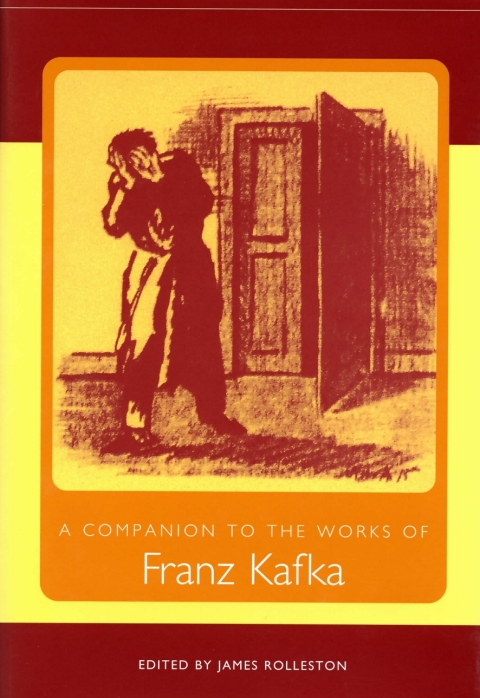

Most ebook files are in PDF format, so you can easily read them using various software such as Foxit Reader or directly on the Google Chrome browser.
Some ebook files are released by publishers in other formats such as .awz, .mobi, .epub, .fb2, etc. You may need to install specific software to read these formats on mobile/PC, such as Calibre.
Please read the tutorial at this link. https://ebooknice.com/page/post?id=faq
We offer FREE conversion to the popular formats you request; however, this may take some time. Therefore, right after payment, please email us, and we will try to provide the service as quickly as possible.
For some exceptional file formats or broken links (if any), please refrain from opening any disputes. Instead, email us first, and we will try to assist within a maximum of 6 hours.
EbookNice Team

Status:
Available0.0
0 reviews
ISBN 10: 1571131809
ISBN 13: 9781571131805
Author: James Rolleston
No other writer of German-language literature in the 20th century has been as fully accepted into the canon of world literature as Franz Kafka. The unsettlingly, enigmatically surreal world depicted in Kafka's novels and stories continues to fascinate readers and critics of each new generation, who in turn continue to find new readings. One thing has become wholly clear: although all theories attempt to appropriate Kafka, there is no one key to his work. The challenge to critics has been to present a strong point of view while taking account of previous Kafka research, a challenge that has been met by the contributors to this volume. The essays follow an introduction by the editor, and include: Clayton Koelb on the controversial question of Kafka editions; Walter H. Sokel on a life of reading--and writing about--Kafka; Judith Ryan on the early stories; Russell A. Berman on tradition and betrayal in `The Judgment'; Ritchie Robertson on anti-Christian elements in `The Judgment,' `The Metamorphosis,' and the aphorisms; Henry Sussman on Kafka's evolving aesthetics; Stanley Corngold on The Trial; Bianca Theisen on Kafka's use of circus motifs in the stories `Up in the Gallery' and `First Sorrow'; Rolf J. Goebel on the connection of Kafka's The Missing Person, `In the Penal Colony,' and `The Great Wall of China' to postcolonial critique; Richard T. Gray on the semiotics and aesthetics of `In the Penal Colony'; Ruth V. Gross on the `enigmatics' of the short fiction; Sander L. Gilman on Kafka's Jewishness and the story `The Country Doctor'; John Zilcosky on the colonial visions in The Castle; Mark Harman on the variants to The Castle and what they tell us about Kafka's writing process; and Clayton Koelb on Kafka's rhetoric in the late stories `Josephine the Singer' and `The Burrow.' James Rolleston is Emeritus Professor of German at Duke University and has written widely on topics in modern German literature.
1. Kafka and the Problem of the Canon
Peter Beicken
2. Writing "The Metamorphosis": Kafka's Other Story
Stanley Corngold
3. The Kafkaesque: A Concept in Search of an Author
Sander L. Gilman
4. Kafka and the Language of Modernism
Russell Berman
5. Kafka's Poetics of Space
Elizabeth Boa
6. Kafka and the Yiddish Theater
Kathryn Hellerstein
7. Kafka and the Law
Clayton Koelb
8. Kafka and the Critics
Walter H. Sokel
9. Kafka and the Holocaust
Lilian R. Furst
10. Kafka, Gender, and Sexuality
Gabriele Schwab
11. Kafka's Readers
Ritchie Robertson
12. Kafka in Translation
Malcolm Pasley
13. Kafka and the Cinema
John Zilcosky
14. Kafka and Contemporary German Literature
Peter Goßens
15. Kafka's Legacy in the United States
Mark M. Anderson
a companion to assyria
a companion book
a companion to joachim of fiore
a companion to wolves
a companion to families in the greek and roman worlds
Tags: James Rolleston, Companion, Works